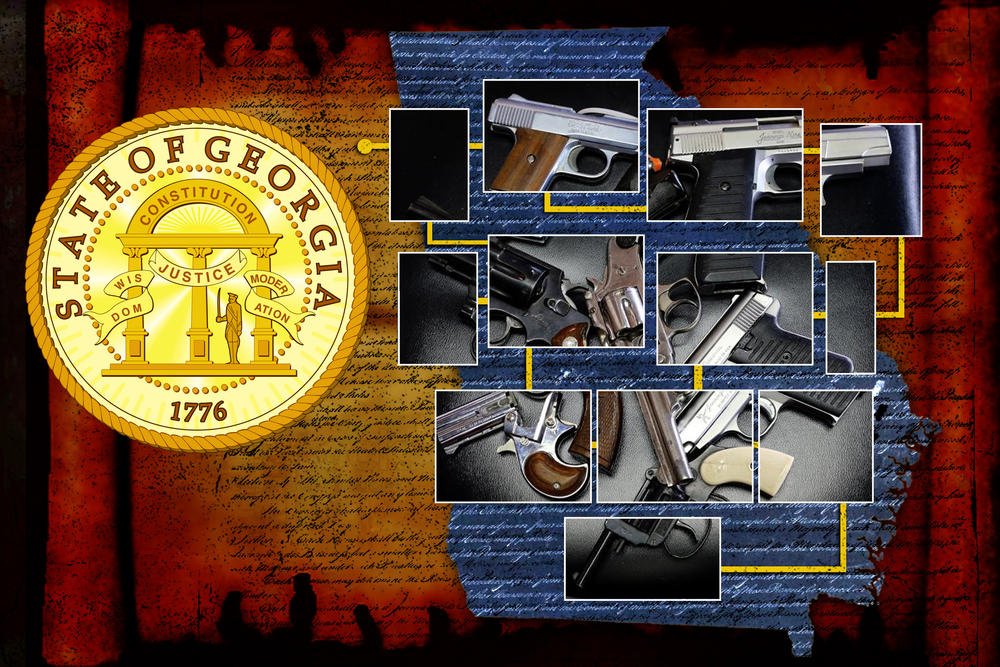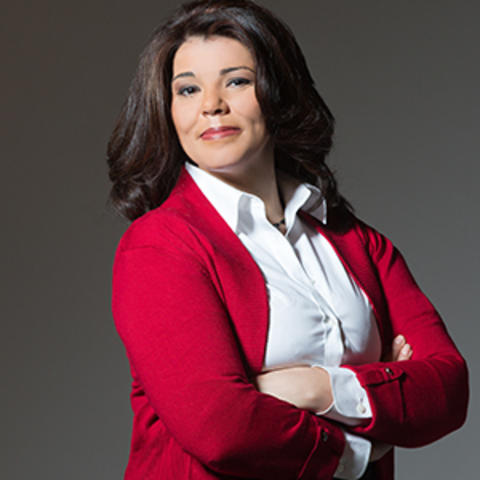Section Branding
Header Content
A History Of Guns In Georgia
Primary Content
Guns are a fixture in many Southern homes. Pew Research estimates at least one in three households keep a gun. We caught up with some gun owners around Georgia to ask why and when they’re armed.
Why some Georgians carry guns and the laws behind firearms.
“When I was a little girl, my father taught me how to shoot. And he felt we needed to know how to protect our family. I was eight years old when he first put a gun in my hand,” said CoCo from Atlanta.
“I own ‘em for hunting, I own ‘em for protection. Matter of fact I got one right here in the door of my truck. If somebody comes up and starts something, I’m putting them where they belong. It’s quicker than calling the police,” said Lee Lovelace from Ashland, Alabama.
Penny from Stone Mountain said: “I am a single woman who lives alone, and I need to be able to protect myself.”
“And I hope to god I never ever have to use it,” said Durin Jordan from Douglassville.
We recently talked to some experts about whether guns really make their owners safer. Mark Rosenberg, former President and CEO of The Task Force for Global Health:
“Study after study has shown that if you have a gun in your home the risk of someone in your family being shot goes up 200 percent. It triples.”
Before we get into an in-depth discussion of gun control and violence prevention, and how this debate plays out in the South, let’s catch up on current Georgia gun laws, and how we became one of the most permissive states in the country when it comes to guns. It wasn’t always this way. At one point, we led the nation in gun control.
A state law passed in 1833 reads: "The free person of colour, so detected in owning, using, or carrying fire arms, shall receive upon his bare back, thirty-nine lashes.”
Robert Cottrol is a professor of law at George Washington University.
“Some of the earliest gun control legislation was in fact being aimed directly at black people,” he said. “Immediately after the Civil War the southern states in 1865 and '66 passed the Black Codes and among other things the Black Codes prohibited the newly freed black population from having weapons. In fact, that was one of the principal reasons for the passage of the 14th Amendment, it was basically to attack the Black Codes and also to apply the Bill of Rights and specifically the Second Amendment to the states.”
Gun control was first applied to white Georgians in 1837. Lawmakers banned all concealed weapons.
“And what the authorities were afraid of is that people carrying concealed weapons, all the sudden the threat appears and you didn’t know it was there. Whereas if someone is carrying a weapon that’s visible, you know the threat is there,” said Peter Hoffer, legal historian at the University of Georgia.
But Georgia’s concealed carry ban was short-lived. The Georgia Supreme Court struck it down 1846.
This case is still cited in modern courts as a precedent. It’s the first gun control measure in the nation overturned on Second Amendment grounds.
Now, Georgia is known as a “shall issue” state. That means law enforcement agencies must issue a concealed-carry gun permit to anyone 21 or older who passes a background check. States in which officials have more discretion are called “may issue” states.
In 2006, Georgia became a “stand your ground” state. That’s a legal defense for shooting someone you think is a danger to you. The National Rifle Association even sells insurance policies to cover shooters who claim self-defense. These policies were heavily advertised at the NRA’s annual convention in Atlanta this year. One video asked attendees: “We prepare so much for what leads to pulling the trigger. Are you prepared to handle what happens after?”
In 2014, Governor Nathan Deal signed the Safe Carry Protection Act, also known as the "guns everywhere" law. It allows people to carry guns in bars, churches, school zones, government buildings and certain parts of airports. University campuses were added to the list over the summer, when Georgia became the tenth state to enact a campus carry law. Since July of 2017, it’s legal to have a concealed gun in most areas at a state school.
Mandy Ballinger is a Republican representative from Canton who supported the measure by saying: “It's the really the God-given right that people have to not be a victim. States that have enacted campus carry or campus safety have become safer. The numbers prove that and so we just want to afford that to all Georgians.”
But most research does not show that guns make campuses safer. University of North Georgia Professor Matthew Boedy recently checked police records for two major Utah universities, where campus carry’s been around since 2004.
Boedy found police reported back in zero instances of anyone reporting to them that they had used a gun to stop a crime.
There’s no consensus on what can stop gun violence. We sent GPB reporters across the state to ask Georgians what they think might help. Here’s a few snippets from those conversations:
Ashley Crumbly in Savannah said: “I think they should, like, evaluate people first before they like let them get a license to carry a gun.”
"I’m Rex. I’m from Tucker Georgia. The kids and stuff that get shot, is there parents? Or that they’re not responsible gun owners.”
Many people told us they don’t think there’s anything you can do to prevent shootings.
“Because you can’t monitor every single person. 24 hours a day,” said Ramona in Savannah.
Outside Atlanta behind a Waffle House on I-685, Charlie Walters took a grim view.
“My name is Charlie Walters and I live in the woods. Gun control is not going to work. If we take away all the guns, people will start killing people with knives. When we take all the knives away people will start killing everybody with forks. We take all the forks away, people start killing people with spoons.”
Durin Jordan of Douglassville told us he carries a concealed handgun wherever he goes.
“I feel lost without it. Especially when I’m traveling,” Jordan said. “But I don’t see the purpose in having fully automatic weapons for anybody. Owning a weapon such as that is purely for mass destruction. I talked to some guys who said they bought it because they were gonna go hunting. I don’t get that. I don’t understand the point of having a gun that has 50 rounds of ammunition.”
Weapons that fire continuously are banned in the United States, but semi-automatic weapons can be modified to get the same effect. In Georgia, no state law regulates the sale or possession of semi-automatic weapons. There’s also nothing to stop people accused of domestic violence or subject to domestic violence protective orders from buying, or having firearms. Federal law requires dealers to run background checks before they can sell you a gun, but in Georgia, those checks aren’t required if you have a concealed carry permit, and they don’t apply to sales between individuals.
Jim Richardson works behind the counter of a small gun store in metro Atlanta.
“If you sell a gun to your buddy, he does not have to go through the background check, he should but he doesn't have to. That's one of the, to me, one of the failings of the Georgia law,” he said. “If you come in with a carry permit I don't have to do the background check. You can purchase the gun put it in your car and take it all home.”
Richardson says he usually runs a check anyway, unless it's a regular customer.
"When you gauge someone when they come in that's a gray area. And it's almost like you have profiled them. And it's not so much racial, as moral and ethical.”
Richardson guesses that in the past year, he’s encountered around a hundred people who tried to buy guns, but didn’t pass background checks. And he’s refused to sell to two people, even though they met all the requirements.


